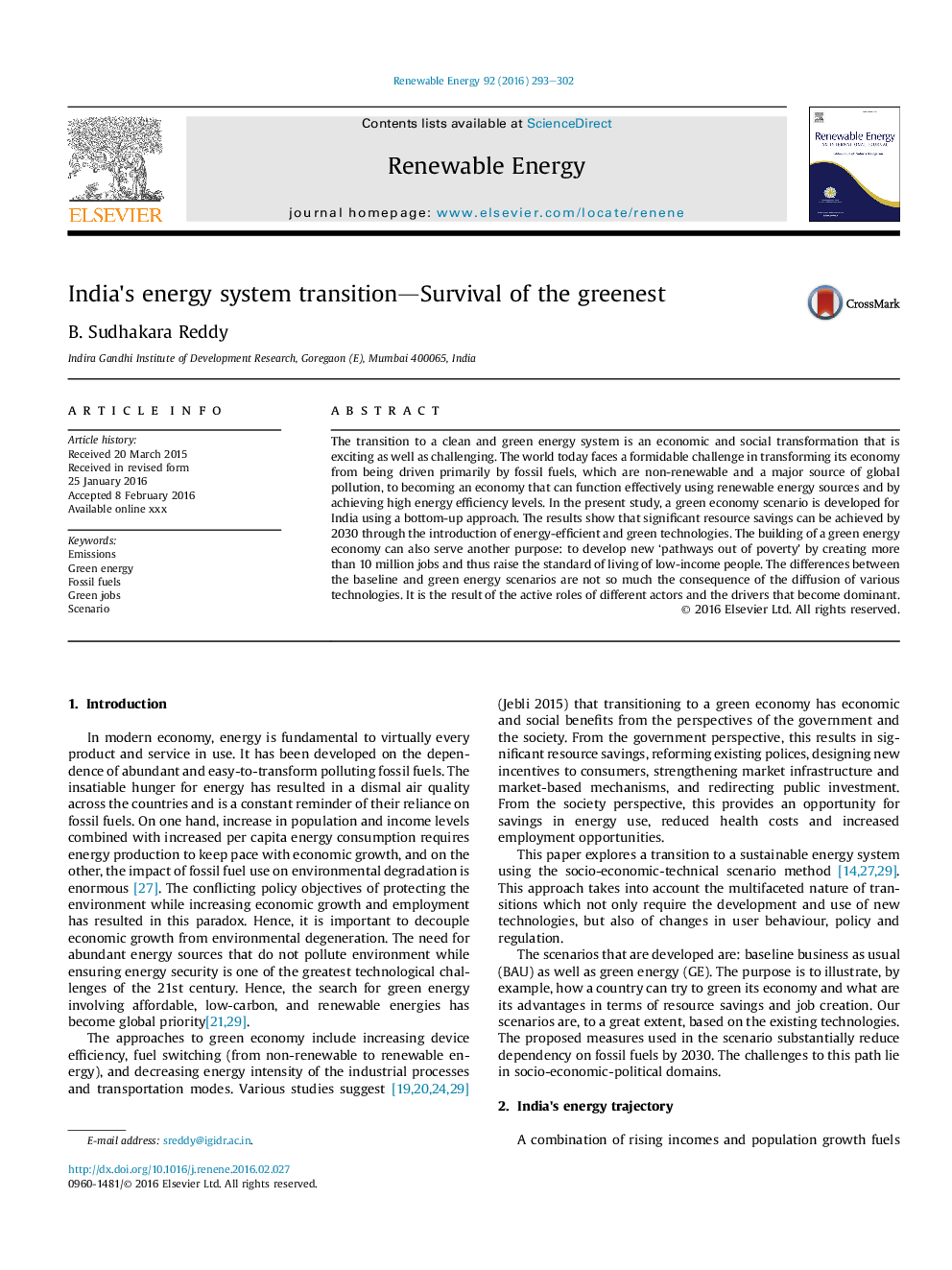| Article ID | Journal | Published Year | Pages | File Type |
|---|---|---|---|---|
| 6766005 | Renewable Energy | 2016 | 10 Pages |
Abstract
The transition to a clean and green energy system is an economic and social transformation that is exciting as well as challenging. The world today faces a formidable challenge in transforming its economy from being driven primarily by fossil fuels, which are non-renewable and a major source of global pollution, to becoming an economy that can function effectively using renewable energy sources and by achieving high energy efficiency levels. In the present study, a green economy scenario is developed for India using a bottom-up approach. The results show that significant resource savings can be achieved by 2030 through the introduction of energy-efficient and green technologies. The building of a green energy economy can also serve another purpose: to develop new 'pathways out of poverty' by creating more than 10 million jobs and thus raise the standard of living of low-income people. The differences between the baseline and green energy scenarios are not so much the consequence of the diffusion of various technologies. It is the result of the active roles of different actors and the drivers that become dominant.
Related Topics
Physical Sciences and Engineering
Energy
Renewable Energy, Sustainability and the Environment
Authors
B. Sudhakara Reddy,
